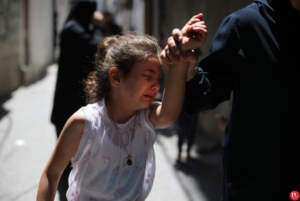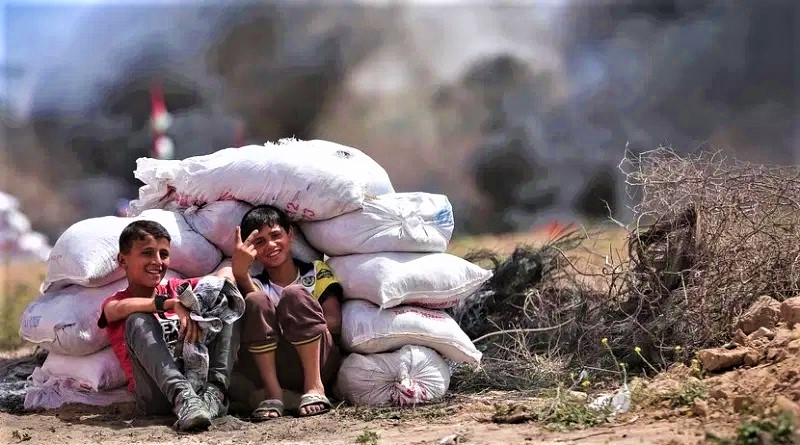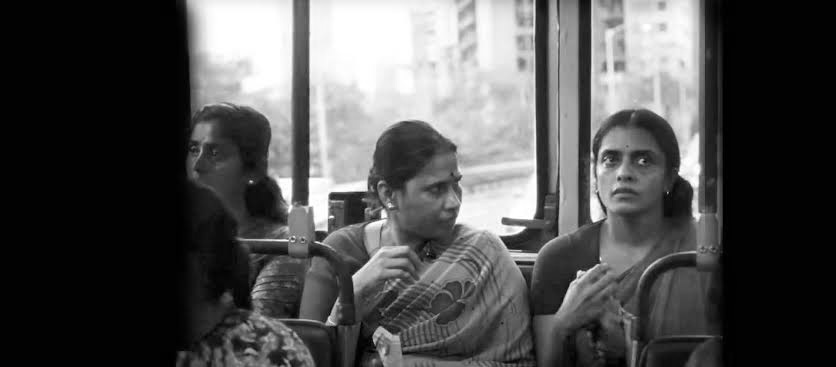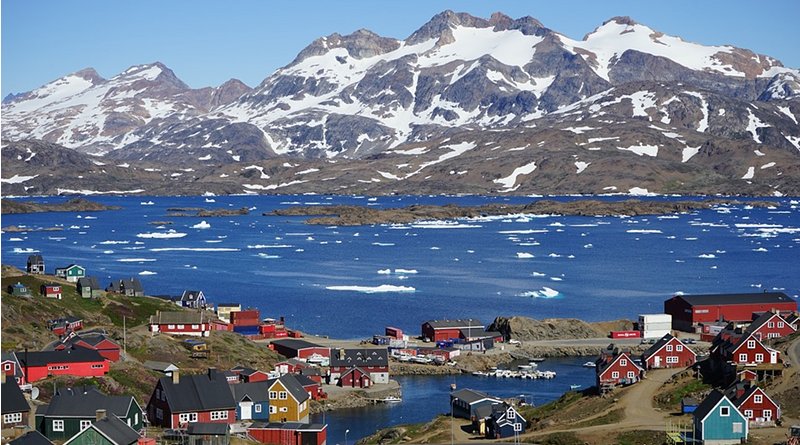Necropower and ‘Death as Political’ in Palestine
Published in Eurasia Review, 17 May 2021. Courtesy to Indian Express, 16 May 2021 where an abridged version had already appeared. This is an edited article of Eurasia Review. The author wishes to thank Michael R. Burch for his comments and suggestions.
“I lived as best I could, and then I died.
Be careful where you step: the grave is wide” (Epitaph for a Palestinian Child, Michael R. Burch).
The two-line Epitaph for a Palestinian Child illustrates the excruciating agonies that women and children in Palestine have been enduring for the better part of a century. The first level victims of the perennial strife in the West Bank and Gaza are undoubtedly children and women. Death has become no longer a bête noire of everyday life in Palestine. Amid the rising tide of assault and inter-communal violence—which began in the last week of the holy month of Ramada—there were reports about the massive displacement of women and children who have taken refuge in UN-run schools.
UNICEF Executive Director Henrietta Fore pointed out that the “level of violence and its impact on children is devastating.” She said: “We are on the brink of a full-scale war. In any war, children–all children–suffer first and suffer most.” Already 41 children had lost their lives as of Sunday and this constitutes nearly one-third of the total casualties since the fighting began a few days ago. In Gaza, dozens of schools have been damaged while at least 29 schools are temporarily sheltering displaced families who fled their homes due to the heavy violence. Tens of thousands of children have been displaced. The UNICEF in a statement said: “The scale of violence is massive. Children are bearing the brunt of this escalation. All sides need to step back and end the violence. All sides have an obligation to protect civilians–especially children–and facilitate humanitarian access. The underlying triggers for this violence will not be resolved through further violence.”

It may be noted that 2.3 million children (out of a population of more than 5 million) in the West Bank and Gaza are under threat of ‘extinction,’ according to an observer. And more than 1 million children are in need of humanitarian assistance, according to UNICEF. This is at a time when almost one-third of Palestinian families live below the poverty line.
This is a very disturbing scenario of the Palestine life-world and there is hardly any acknowledgement of the ground realities, either by the authorities in the Palestine Territory or their detractors elsewhere. The situation has been further compounded by the COVID-19 pandemic which, in fact, called for greater humanitarian intervention in the West Bank and Gaza. But the current conflict scenario puts the entire population in a quagmire of disproportionate insecurity.
‘Death as Political’
“I am here. Anything more than that is rumour and slander.” One couldn’t but help reminisce the lines of A River Dies of Thirst by the Palestinian national poet Mahmoud Darwish—while sitting before a middle-aged Anis Salah at a wayside restaurant on the outskirts of the Cairo city in early September 2019. Salah, a Palestine refugee from Gaza, kept looking at me in fear and suspicion for some time. When I introduced myself as an Indian, Salah heaved a sigh of relief. The agony of Salah was that he had lost his 6-year-old son and 18-year-old brother in an attack in Gaza a few years ago. However, our conversation lasted only for only a few minutes as my colleagues in the Indian delegation were busy moving to the next destination for a scheduled meeting.
Salah having entered the city illegally a decade ago was working in a garment factory run by a local resident who took part in the uprising against the Mubarak regime. Since the ‘failed revolution’ Salah and his master were under constant threat by the El-Sisi regime in Egypt which unleashed a hunting of the Morsi’s supporters. Salah was sure that ‘death was so imminent’ for him and that he had only to choose the option—’who should do it and where should it happen, in Cairo or Gaza.’
Though A River Dies of Thirst resonates with the sufferings and agonies in Gaza, the West Bank and Lebanon, it also echoes the fear of death everywhere for any Palestinian in this world. Salah appeared to me an epitome of ‘death as political’ as enunciated by the Cameroonian social theorist, Achille Mbembe. Mbembe’s ‘necropolitics’ had already encapsulated how the Palestinians encounter their daily life with ‘death as political.’
Blitzkrieg in Palestine
With panics mounting of a full-scale war between Israel and the Palestinians, the world is again grappling with another major crisis amid the surge in COVID-19 in many countries, including in the Occupied Territories. The spiralling violence across Israel, the West Bank and Gaza, in which more than 180 people have already been killed, including 41 children and hundreds injured, has unfolded how the geopolitical faultlines of Arab-Israel history still get entrenched in everyday life situations. It all began with widespread protests against the Israeli efforts to evict Palestinians of the Sheikh Jarrah neighbourhood of East Jerusalem. Later protests mounted against the attacks on Palestinians at the Al-Aqsa mosque in Jerusalem.
Hamas which has been ruling Gaza since 2007 began rocket attacks which crashed into buildings near Tel Aviv causing damage and human casualties. Several people have been killed in Israel since hostilities began. After a couple of days, the Israeli military was getting its combat troops ready for ground operations as it did in 2014 and 2008-2009. Meanwhile Israeli air raids and bombardments continued across the Gaza Strip, leaving many Palestinians no option but to take refuge in UN-run schools and elsewhere.
Even as the Palestinians were set to observe ‘Nakba’ day (in memory of the ‘catastrophe’) on 15 May, they were literally under the threat of another ‘Nakba’ with the state of Israel on its frenzied blitzkrieg in Gaza and the West Bank. If the mass expulsion in 1948-49 resulted in the displacement of more than 750,000 Palestinians from 532 villages—to make way for the new state of Israel—the future of more than 5 million Palestinians today is at multiple risks of terror and necropower.
The West Bank and Gaza along with the Israeli-annexed East Jerusalem were long seen as the basis of a Palestinian state in a ‘two-state’ solution to the long-drawn-out conflict. However, a solution is still elusive even after decades and the goal of a permanent settlement has become ever more faraway with the West Bank and Gaza witnessing forays over settlements, and several states, including the United States recognising Jerusalem as Israel’s ‘exclusive’ capital. While Donald Trump set the stage for a fresh round of fights over Jerusalem, the internal politics of both Israel and the Palestine Authority have played roles in exacerbating the conflict.
Israel has been facing political instability in the recent past with four parliamentary elections (in two years) reaching nowhere for a stable government to emerge. This is at a time when the right-wing Prime Minister Benjamin Netanyahu has been on trial for a host of charges like bribery, breach of trust and fraud. Even the results of the latest election held in March this year became inconclusive and the political deadlock might lead to another election later this year. Sensing these forthcoming electoral/parliamentary options, Netanyahu, who is keen on getting another term could indulge in any strategy might result in political payoffs.
On the other side, the Palestinian President Mahmoud Abbas decided to put off the scheduled parliamentary and presidential elections—to be held in May and July this year. The postponement was ‘necessitated’ by the issues related to voting in East Jerusalem, already under the Israeli occupation, but there were also reports of rifts in Abba’s Fatah party which led to the decision. He declared that the elections would be deferred “until the participation of our people in Jerusalem is guaranteed.” However, many Palestinians refused to buy this argument. They believe that Abbas was using Jerusalem as a pretext to circumvent elections because Fatah would lose its hold given its unpopularity and that would help Hamas, a major Islamist adversary, to consolidate its position. Israel knows that if Hamas gets consolidated its position in the Palestine Territory, it would further escalate the conflict scenario. Moreover, the US and other Arab states (especially those who went in for the ‘Abraham Accords’ in the recent past) wish to sideline Hamas in the emerging geopolitical reality of the region.
These internal political factors, athough significant in electoral terms, continue to dictate the ‘terms of life and death’ for Palestinians and have offered a fresh lease of life for the Likud party leader Netanyahu. Plausibly, Hamas had realised that its political future could be easily entwined with the Jerusalem question, especially in the holy month of Ramadan, and hence it began activities to confront, if not provoke, the Israeli forces who were guarding the Damascus Gate—a major entry point to Jerusalem’s Old City.
Meanwhile issues emerging from the eviction of Palestinians—from settlement in the Sheikh Jarrah neighbourhood—stirred up widespread protests and demonstrations. Hamas knew that the Fatah-led Palestinian Authority wouldn’t do anything to address these issues. This became clear after the storming of the al-Aqsa mosque (the third holiest shrine in Islam) by the Israeli forces on 10 May. Palestinians were already agitated over harsh measures put in place by the Israeli forces, which included their traditional gathering outside the mosque. This was followed by inter-communal tensions and conflict, exacerbated further by ultra-right Jews who went on with ‘death to Arabs’ slogans. The news of eviction of Palestinians from Sheikh Jarrah added fuel to the fire.
According to the Israeli appellants, the Jewish families who lost their lands in the wake of Israel’s creation in 1948 can recover them as per the Israeli law. But it does not afford the same entitlement to the hundreds of thousands of Palestinians who were displaced after 1948. Moreover, East Jerusalem was captured by Israel from Jordan in 1967. The Palestinians say that if Jews can claim back their lands in East Jerusalem based on their pre-1948 documents, the same law must be made applicable to them in West Jerusalem. It may be recalled that in October 2020 an Israeli court ruled that four Palestinian families should vacate their homes, and gave May 2 as the date for their forcible eviction. But the date has been postponed twice with the escalation of conflict and inter-communal tensions.
It was in this background that a UN spokesman, Rupert Colville, called on Israel “to immediately call off all forced evictions.” He reminded that “East Jerusalem remains part of the occupied Palestinian territory, in which international humanitarian law applies” and that “the occupying power… cannot confiscate private property in an occupied territory.”
Though the current pace of conflict began as protests against forced expulsions, it has become a major showdown in Israel-Palestine history. If the deteriorating situation continues, the experience of Sheikh Jarrah is likely to be stretched out to other areas of the occupied territories and it will be compounded further by the current surge in COVID-19. Already the Palestinians are caught between the agonies of the pandemic and the panics of displacement.
This was brought to light by The Lancet in an analysis of the situation in the occupied territories carried out by the Lancet Palestinian Health Alliance. It noted that Gaza has been “under intensified blockade by Israel” for quite a long time, “resulting in shortages in medical supplies and clinical capacity. Israel has denied its status and role as an occupier of the West Bank and the attendant responsibilities for the health of the occupied population, as laid down in the Geneva Convention and highlighted by the UN and 18 human rights organisations.”
The Lancet wrote that “Israel is complicit in the increased vulnerability of the Palestinian population to COVID-19. Israel has not only a legal but a moral responsibility to secure the urgent availability of approved vaccines.” It also called on physicians and other health professionals “to raise their voices and put pressure on the Israeli Government to provide vaccines to Palestinians, including Palestine refugees on the West Bank and Gaza Strip.”
The UN human rights agency had already reminded Israel that it’s their “responsibility to provide equitable access to Covid-19 vaccines for Palestinians in Gaza and the West Bank.” But Israel turned down such a position. The Israeli health minister went to the extent of saying that as per the Oslo agreements the Palestinians “have to take care of their own health.” The delay in the health care provisions in the occupied territories resulted in a sharp rise in both coronavirus infections and deaths.
All international humanitarian laws and conventions affirm Article 3 of the Universal Declaration of Human Rights, which states: “Everyone everywhere “has the right to life, liberty and security of person.” Article 6 (1) of the International Covenant on Civil and Political Rights reiterates it, saying every “human being has the inherent right to life.” But the State of Israel has been making all efforts to ensure that the Palestinians have no rights afforded them by international laws, norms and standards.
According to Mbembe (2013), “the late-modern colonial occupation in Gaza and the West Bank presents three major characteristics in relation to the working of the specific terror formation I have called necropower. First is the dynamics of territorial fragmentation, the sealing off and expansion of settlements. The objective of this process is twofold: to render any movement impossible and to implement separation along the model of the apartheid state. The occupied territories are therefore divided into a web of intricate internal borders and various isolated cells.”
Mbembe wrote that the “ultimate expression of sovereignty resides in the power and capacity to dictate who may live and who must die.” Illustrating the Palestinian case, he said that “late-modern colonial occupation is a concatenation of multiple powers: disciplinary, biopolitical, and necropolitical. The combination of the three allocates to the colonial power an absolute domination over the inhabitants of the occupied territory. The state of siege is itself a military institution. It allows a modality of killing that does not distinguish between the external and the internal enemy. Entire populations are the target of the sovereign. The besieged villages and towns are sealed off and cut off from the world. Daily life is militarized. Freedom is given to local military commanders to use their discretion as to when and whom to shoot. Movement between the territorial cells requires formal permits. Local civil institutions are systematically destroyed. The besieged population is deprived of their means of income. Invisible killing is added to outright executions.”
If Anis Salah thought that ‘death was so imminent’ for him—from multiple sources—that inscribes the life-world experience of every Palestinian living in the occupied territories, as well as in the diaspora. He lost his son and brother in Gaza for ‘no reason.’ Yet, it remains a ‘political’ project for many. And the ‘state of exception’ is a legitimising tool for necropolitics of the occupier. Salah regretted saying that his family has been caught between the ‘occupier’ and the ‘occupied,’ over years—indicating that the new rulers of their remaining ‘homeland’ were any more different in pronouncing ‘Death as political.’
References
Mbembe, A. (2003): “Necropolitics,” Public Culture,15(1): 11–40, available at https://warwick.ac.uk/fac/arts/english/currentstudents/postgraduate/masters/modules/postcol_theory/mbembe_22necropolitics22.pdf
The Lancet (2021): “COVID-19 vaccines for Palestinians,” Vol. 397, 13 February, https://www.thelancet.com/pdfs/journals/lancet/PIIS0140-6736(21)00185-9.pdf
UN Human Rights Council (2021): “Israel/OPT: UN experts call on Israel to ensure equal access to COVID-19 vaccines for Palestinians, Jan 14, 2021,” https://reliefweb.int/report/occupied-palestinian-territory/israelopt-un-experts-call-israel-ensure-equal-access-covid-19




